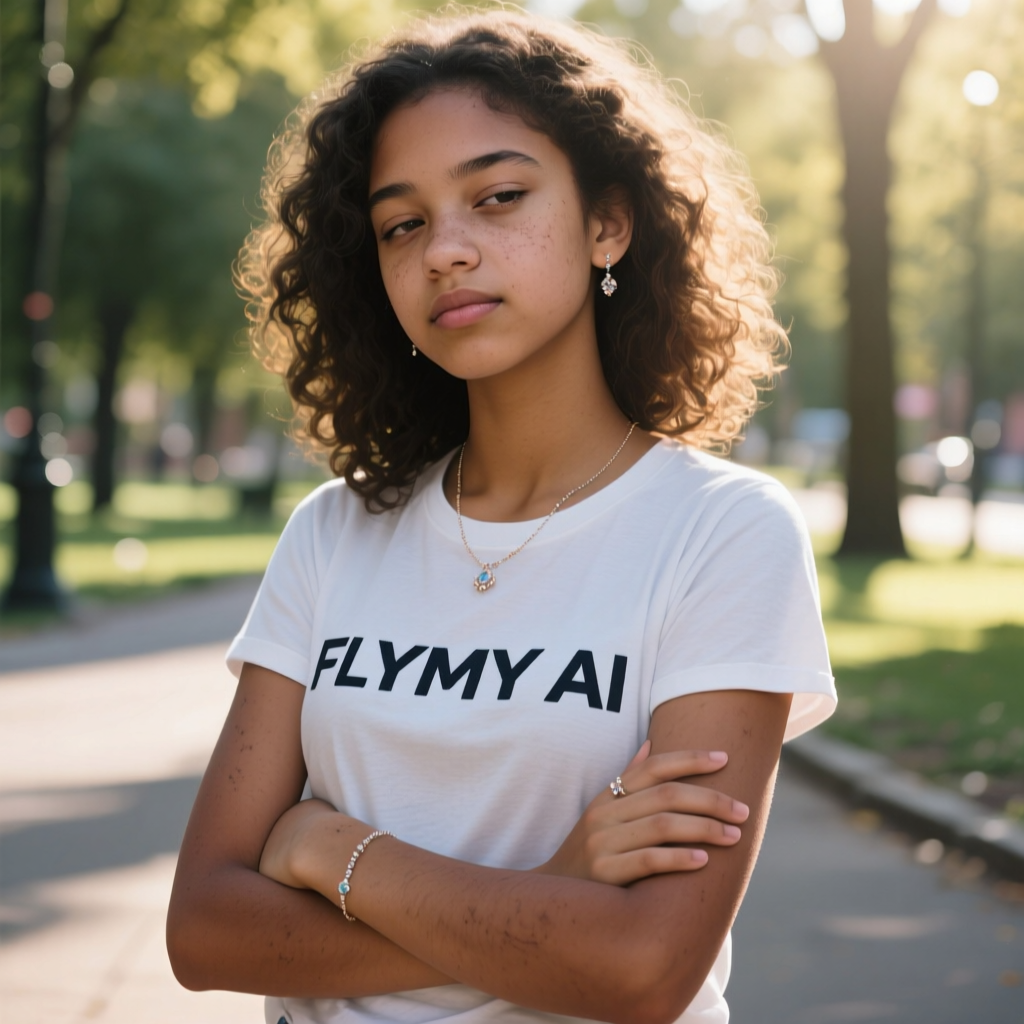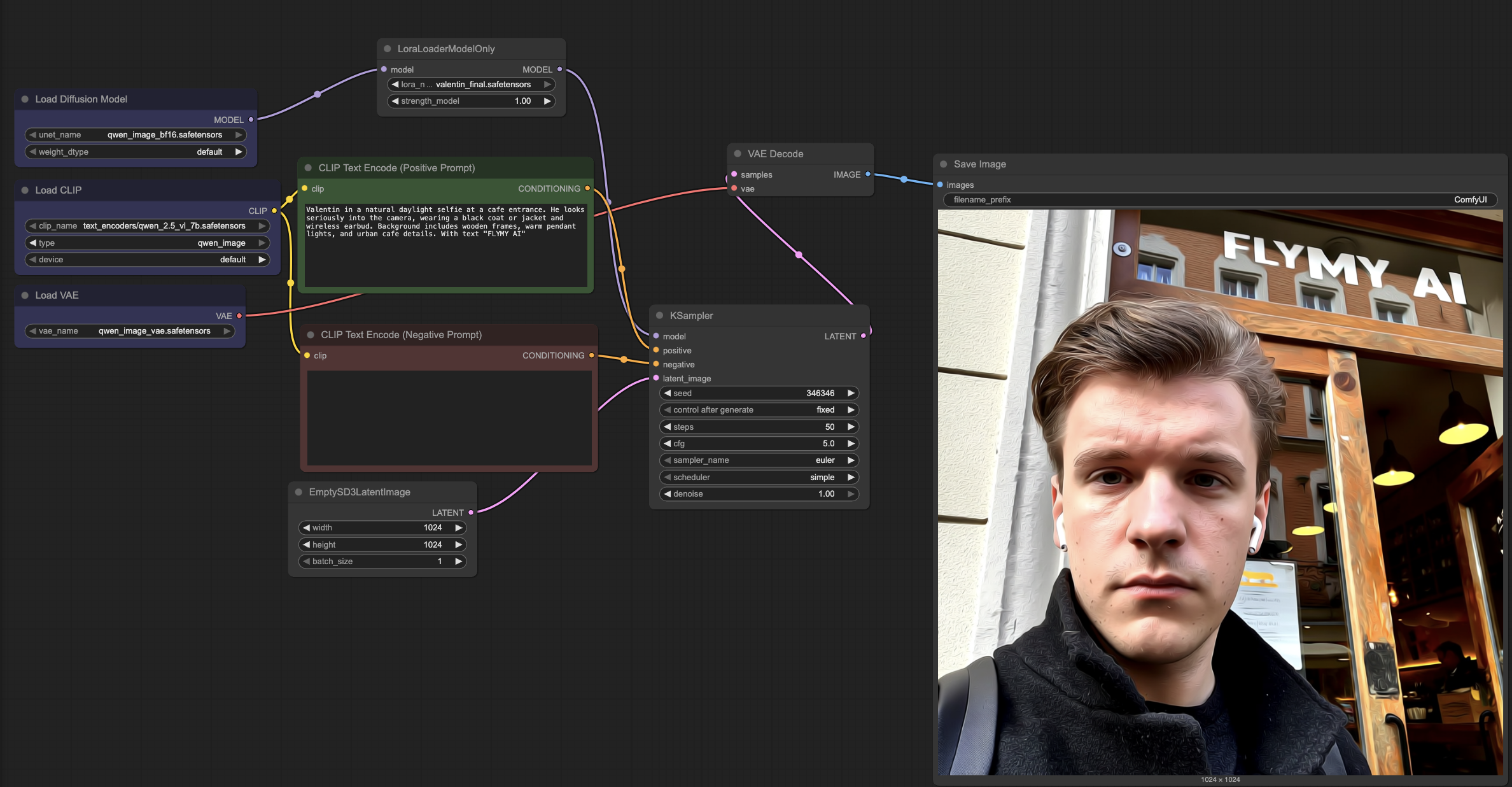metadata
license: apache-2.0
language:
- en
base_model:
- Qwen/Qwen-Image
pipeline_tag: text-to-image
tags:
- lora
- qwen
- qwen-image
- realism
- realism-lora
library_name: diffusers
LORA Qwen-Image example
Lora for Qwen-Image
No trigger word required
🧪 Usage
🔧 Initialization
from diffusers import DiffusionPipeline
import torch
model_name = "Qwen/Qwen-Image"
# Load the pipeline
if torch.cuda.is_available():
torch_dtype = torch.bfloat16
device = "cuda"
else:
torch_dtype = torch.float32
device = "cpu"
pipe = DiffusionPipeline.from_pretrained(model_name, torch_dtype=torch_dtype)
pipe = pipe.to(device)
🔌 Load LoRA Weights
# Load LoRA weights
pipe.load_lora_weights('flymy_realism.safetensors', adapter_name="lora")
🎨 Generate Image with lora trained on person
prompt = '''Super Realism portrait of a teenager woman of African descent, serene calmness, arms crossed, illuminated by dramatic studio lighting, sunlit park in the background, adorned with delicate jewelry, three-quarter view, sun-kissed skin with natural imperfections, loose shoulder-length curls, slightly squinting eyes, environmental street portrait with text "FLYMY AI" on t-shirt.'''
negative_prompt = " "
image = pipe(
prompt=prompt,
negative_prompt=negative_prompt,
width=1024,
height=1024,
num_inference_steps=50,
true_cfg_scale=5,
generator=torch.Generator(device="cuda").manual_seed(346346)
)
# Display the image (in Jupyter or save to file)
image.show()
# or
image.save("output.png")
🖼️ Sample Output
🎛️ Using with ComfyUI
We provide a ready-to-use ComfyUI workflow that works with our trained LoRA models. Follow these steps to set up and use the workflow:
Setup Instructions
Download the latest ComfyUI:
- Visit the ComfyUI GitHub repository
- Clone or download the latest version
Install ComfyUI:
- Follow the installation instructions from the ComfyUI repository
- Make sure all dependencies are properly installed
Download Qwen-Image model weights:
- Go to Qwen-Image ComfyUI weights
- Download all the model files
Place Qwen-Image weights in ComfyUI:
- Copy the downloaded Qwen-Image model files to the appropriate folders in
ComfyUI/models/ - Follow the folder structure as specified in the model repository
- Copy the downloaded Qwen-Image model files to the appropriate folders in
Download our pre-trained LoRA weights:
- Visit flymy-ai/qwen-image-lora
- Download the LoRA
.safetensorsfiles
Place LoRA weights in ComfyUI:
- Copy the LoRA file
flymy-ai/qwen-image-lora/pytorch_lora_weights.safetensorstoComfyUI/models/loras/
- Copy the LoRA file
Load the workflow:
- Open ComfyUI in your browser
- Load the workflow file
qwen_image_lora_example.jsonlocated in this repository - The workflow is pre-configured to work with our LoRA models
Workflow Features
- ✅ Pre-configured for Qwen-Image + LoRA inference
- ✅ Optimized settings for best quality output
- ✅ Easy prompt and parameter adjustment
- ✅ Compatible with all our trained LoRA models
The ComfyUI workflow provides a user-friendly interface for generating images with our trained LoRA models without needing to write Python code.
🖼️ Workflow Screenshot
🤝 Support
If you have questions or suggestions, join our community:
⭐ Don't forget to star the repository if you like it!

